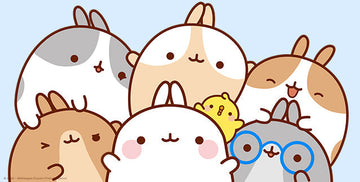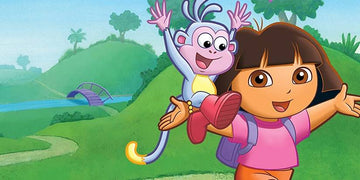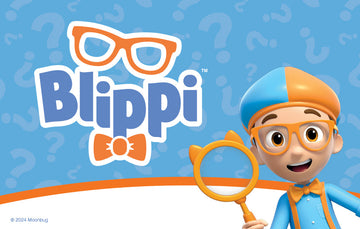From the timeless classics to the trend-setters, names are more than just labels. They're a reflection of our identity, heritage, and the era we're born into. But what happens when we blend the old with the new? That's where modern takes on traditional names come into play and something which is definitely becoming more common.
It's a fascinating blend of nostalgia and innovation, where parents are choosing to honor their roots while also staying current. Whether it's tweaking the spelling, combining two names, or finding new inspiration from old sources, the result is a fresh spin on the familiar.
So, let's dive into this intriguing world of modernized monikers and explore how they're reshaping our perception of old names.
The Rise in Popularity of Modern Takes on Traditional Names
It's evident that modern versions of traditional names are gaining recognition. These trendy monikers retain a sense of familiarity, giving a contemporary flair to established classics.
Why Parents are Choosing Updated Names
Parents opt for updated names to preserve familial and cultural heritage, yet express individuality. Adjacency to tradition keeps these names recognizable, while a modern tweak communicates a progressive outlook. For instance, classic names like 'Michael' can transform into 'Micah', and 'Catherine' into 'Kathryn'.
William can transform into the more contemporary Liam , and Dorothy might be modernized as Thea . Similarly, Joseph can evolve into Josiah , and Abigail can be shortened to Gail . Alexander often becomes the sleek Xander , while Thomas can be reimagined as Tommy . Isabella can be shortened to Bella , and Katherine can become the stylish Kat . Frederick might be updated to Ricky , and Margaret can turn into the chic Greta . These transformations reflect a growing trend towards names that feel both familiar and fresh, allowing parents to honor tradition while embracing a modern twist.
Key Factors Influencing the Trend
We think several dynamics drive this naming trend. Uniqueness often leads the charge, as parents strive for originality without straying too far from the known. Likewise, celebrity influence plays a role, with high-profile name-changes offering inspiration. Moreover, the desire to honor roots while embracing the present keeps updated traditional names in vogue.
In line with this trend, I'd like to present an exciting offer. If you're in search for quality and fashionable merchandise for your little one, Sandilake Clothing is your go-to resource! This award-winning store, featured on Shark Tank, offers dynamic clothing for babies and toddlers. They specialize in seasonal attire, particularly for Christmas and Halloween. Moreover, their line has been so successful that it's sparked imitations from larger chains. Check out Sandilake Clothing and their bestsellers, girls’ collection, Halloween collection, budget-friendly options, and their Thanksgiving collection. Rest assured, you'll find something that embodies your child's unique modern spirit.
Understanding the Meaning of Traditional Names
Traditional names often hold a profound historical and cultural significance. Let's delve deeper into the stories of these richly meaningful monikers.
Decoding the Message Behind Ancient Names
Ancient names often carry a deeply entrenched meaning, offering insight into the values and beliefs of our ancestors. For example, names originating from Greek mythology, like 'Helen,' represent the notion of beauty. Contrarily, names like 'Alexander' evoke themes of power and leadership.
Names also convey moral virtues. For instance, 'Grace,' 'Hope,' 'Faith,' and 'Joy' suggest a spiritual leaning and uphold the value of optimism and morality.
Insight into the Cultural Significance
The cultural significance of a name extends beyond its literal meaning. It encapsulates the traditions, customs, and beliefs that define a particular society. Local dialects, folklore, and religious scriptures often guide the choice of names. For instance, 'Ming' is commonly used in Chinese culture, implying brightness or clarity. In contrast, 'Liam,' a popular Irish name, symbolizes strong-willed warrior and protector.
Traditional names stand as a testament to our past, embodying the spirit of our ancestors. Embracing such names, albeit with a modern take, allows us to honor our roots while nurturing our individuality. As we walk down the path of parenting, it's not just a question of 'What's in a name?' but rather 'What's the story within the name?'
Aditi (अदिति) - Hindu/Sanskrit: Means "boundless" or "free," revered as the mother of the gods, symbolizing infinity and consciousness.
Amara (أمارا) - African/Arabic: Means "grace" or "immortal" in African languages and "eternal" in Arabic, signifying beauty, resilience, and timelessness.
Hiroshi (広志) - Japanese: Means "generous" or "prosperous," reflecting values of generosity and abundance.
Zara (زارا) - Arabic/Hebrew: Means "princess" or "flower" in Arabic and "radiance" in Hebrew, carrying connotations of beauty and nobility.
Ayaan (أيان) - Somali/Arabic: Means "good fortune" or "destiny," representing hope for a prosperous future.
Ananya (अनन्या) - Sanskrit: Means "unique" or "incomparable," signifying a distinct identity.
Eamon (Éamon) - Irish: Means "wealthy protector," reflecting cultural emphasis on leadership, strength, and family protection.
Isla (Islay) - Scottish: Derived from the Scottish island of Islay, symbolizing nature, tranquility, and heritage.
Leif (Leifr) - Norse: Means "heir" or "descendant," associated with the Norse explorer Leif Erikson.
Priya (प्रिया) - Sanskrit: Means "beloved" or "dear," embodying the concept of love and affection in relationships.
Yara (يارا) - Brazilian/Arabic: In Brazilian culture, linked to a water goddess symbolizing beauty; in Arabic, means "small butterfly," representing delicacy and transformation.
Kofi - Akan (Ghanaian): Means "born on Friday," reflecting Akan naming practices that connect to heritage and time.

The Art of Moderation: Modifying Traditional Names
Continuing from where the previous section left off, it's clear that modernizing traditional names is an art that needs understanding and finesse. This section aims to uncover the intricacies of modifying traditional names, ensuring they still carry their original essence, even after being modernized.
Modernizing Names while Retaining Their Essence
In the process of adding a modern touch to traditional names, it's crucial to retain their intrinsic essence. This task combines respect for cultural heritage with the desire to be unique and contemporary. Let me conceptualize these practices using overarching patterns and trends in naming.
First, shortening a name retains its historical significance while making it easier to pronounce and write. For instance, the traditional names "Alexandria" might be modernized as "Alex," and "Sebastian" can be shortened to "Seb."
Second, blending two traditional names yields a unique, modern name that still carries traditional roots. This technique allows parents to honor multiple family members or cultural heritages through the naming process. For example, combining "Isabella" and "Sophia" results in the modern name "Bellphia."
Lastly, it's common to adjust the spelling of traditional names to add a modern flair. For instance, "John" might become "Jon," or "Catherine" could be spelt as "Kathryn."
Creative Techniques to Modernize a Traditional Name
Unleashing creativity in the process of modernizing names leads to unique and trendsetting outcomes. Parents today are more innovative and open to experimenting with name modifications. Techniques such as reversing a name, drawing inspiration from nature, or garnering influences from popular culture provide ways to create a modern name while still respecting its traditional roots.
Reversing a name, though unconventional, lends a distinctive modernity. For instance, the traditional name "Naomi" may turn into the contemporary "Imaon."
Another technique involves borrowing from the natural world, turning to flora, fauna, or geographical features for inspiration. This approach lends a sense of timelessness and versatility to names. For instance, the traditional name "Lily" might become the more modern "Blossom."
Finally, popular culture, including film, television, and literature, often influences the modernization of traditional names. For instance, traditional names like "Elizabeth" and "Edward" have been modernized to "Bella" and "Jacob" due to the influence of the 'Twilight' series.
Case Studies of Modern Takes on Traditional Names
Diving deeper into the modernization of traditional names, let's explore some real-life instances of this trend. These modernized traditional names serve as evidences of our evolving naming practices.
Examples from Celebrities
Prominent celebrities often set naming trends, their modern name changes often spark nationwide or even global trends. The superstar Beyoncé, for instance, comes from the more traditional name, "Beyaoncellete." With this simple modification, she transformed a classic moniker into a modern, unique one that's unique to her. Similarly, the actor Brad Pitt, born William Bradley Pitt, shortened his full traditional name to a modern version that's now widely recognized.
Another celebrity example includes reality TV star and beauty mogul Kim Kardashian, who named her children North, Saint, Chicago and Psalm, drawing inspiration from directional, religious, and geographical elements. These instances exemplify modifying traditional names or concepts to create modernized versions that remain unique and memorable.
Unexpected Twists in Regular Names
Modern takes on traditional names are not limited to celebrity circles. They've made their way into everyday lives too. For example, traditional names like Catherine and Elizabeth have seen creative adaptations such as Cady, Bethan, and Elsie - shorter, modern versions that maintain the essence of the originals.
In a more unconventional twist, popular names such as Dylan and Ryan turn into Laney and Nari when reversed or rearranged. This demonstrates how an unexpected twist can create a fresh outlook on regular names, without losing its roots.
In a world where originality is celebrated, Sandilake is a brand that shares this progressive spirit. Offering a wide variety of exciting clothing for babies and toddlers, this award-winning store brings creativity and innovation in every garment. Specializing in seasonal wear, Sandilake’s collection especially stands out during Christmas and Halloween. Recently featured on Shark Tank, their unique range of products has taken the children's clothing market by storm. Visit their website , or explore their best sellers , girls collection , Halloween collection , budget-friendly range , and Thanksgiving collection to discover the magic yourself. Don't just fit in, standout with Sandilake.
Impact of Modern Takes on Names in Society
The weaving of traditional names into modern identities plays a critical role in societal fabric. This evolution spurs lively conversations and incites novel perspectives.
The Acceptance of Modern Names
In recent years, there's been a notable shift towards the acceptance of non-traditional baby names, as reflected in their presence on the top 1000 names in the US. Parents are increasingly opting for names that offer a unique and modern twist, moving away from classic choices. For instance, names like Zayden , Maverick , and Jaxon have surged in popularity, breaking into the top 1000 with their contemporary flair. Names such as Ryker and Axel exude strength and a sense of adventure, while Kyler and Nash provide fresh, modern alternatives to more traditional options. Additionally, names like Kaison , Cruz , and Bentley are gaining traction, blending modern style with a hint of sophistication. The inclusion of these names in the top 1000 signifies a broader cultural embrace of individuality and the evolving landscape of baby naming in the United States.
The trend towards non-traditional names is also evident among girls, as reflected in the top 1000 names in the US. Parents are increasingly choosing names that break away from the conventional, opting for fresh and distinctive options. Names like Zara and Nova have become popular choices, bringing a modern edge with their unique sounds and meanings. Everly and Ariana are also climbing the charts, offering a blend of elegance and contemporary appeal. Meanwhile, names such as Willow and Luna draw inspiration from nature and the celestial, appealing to parents who seek something ethereal and timeless. Emery , Paisley , and Kinsley are further examples of how non-traditional names are becoming mainstream, each offering a stylish and modern alternative to more classic names
Social Repercussions: Pros and Cons
Although the trend originates from a desire to maintain relevance while honouring heritage, it's not without consequences. On the brighter side, modern takes on traditional names often promote diversity and multiculturalism, grounding the wearer with their roots while embracing the present.
Yet, there's the risk that unique or highly-modified names might attract prejudice, or make a person feel singled out or misunderstood. It's important for society to appreciate individuality without allowing naming choices to shade perceptions or judgments. In the end, modernizing traditional names should offer an avenue for individuals to express their uniqueness,.
As detailed in this section, the impact of name modernization patterns on society carries significant implications. As names are central to our identities, it's crucial to consider the potential benefits and downsides of this ongoing trend.
Conclusion
We've explored the art of reinventing traditional names, a trend that beautifully marries the old with the new. It's a way to honor our roots while showcasing our unique identity. From celebrities to everyday folks, we're seeing a shift towards modernized versions of traditional names, sparking interesting dialogues and promoting diversity. Yet, it's crucial to remember that every name carries a story, and in the process of modernization, we must respect its essence. As we move forward, let's continue to embrace the fluidity of identities reflected in our names. However, let's also be mindful of the potential for misunderstanding and prejudice. In the end, it's not just about a name—it's about who we are and who we aspire to be.





